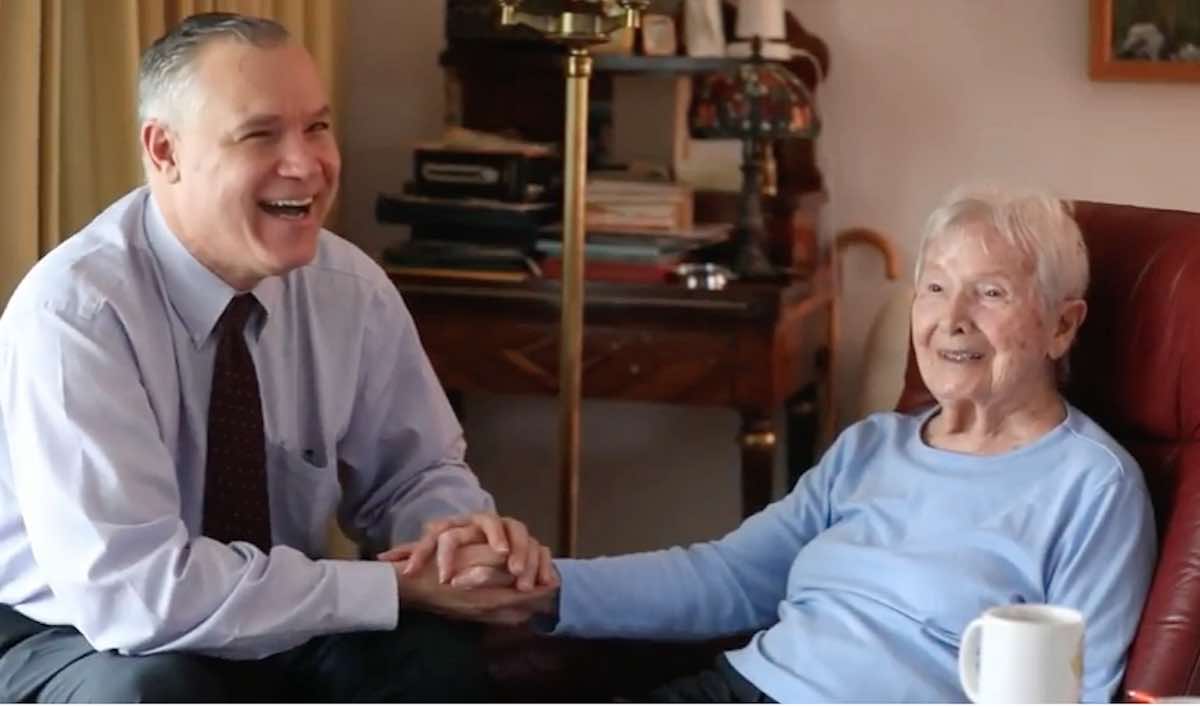A doctor’s hunch has eliminated all signs of advanced skin cancer from a patient who had no other options of treatment.
Two years ago, a 97-year-old woman whose right leg was covered with squamous cell tumors went to see dermatologist Anna Nichols, at Sylvester Comprehensive Cancer Center.
Surgery is the standard of care for most patients with skin cancer, but the woman’s tumors were so numerous, it was impossible to operate.
“She was not a candidate for surgery because of the sheer number and size of her tumors. She wasn’t a candidate for radiotherapy, again for the same reasons,” said Dr. Nichols, an assistant professor at the University of Miami Miller School of Medicine, whose report on this case was published online in JAMA Dermatology.
WATCH: Hundreds of People Are Being Cured of Blindness Every Day With Cheap, Minutes-Long Surgery
Luckily, Nichols has had experience with this kind of cancer before.
Squamous cell carcinoma is the second-most-common form of skin cancer. Evidence suggests the human papilloma virus (HPV) plays a role in the development of some types of this skin cancer.
Though there is very little research that suggests an HPV vaccine could combat existing skin tumors, a case report by Dr. Nichols in 2017 showed the HPV vaccine Gardasil reduced the number of new basal and squamous cell skin cancers in two patients – so Tim Ioannides, a voluntary faculty member at UM, suggested using the vaccine as an off-label treatment by directly injecting it into the tumors.
RELATED: 8-Year Study Shows That Simple Treatment Can Reverse Type 1 Diabetes to Almost Undetectable Levels!
Since her patient had no other options, Dr. Nichols offered her the treatment. It is considered an “off-label” use because Gardasil is only approved for the prevention of cervical, anal, and genital cancers caused by the human papilloma virus.
“I think we had a really reasonable expectation and good data that this was actually going to, at the very least, do no harm to this patient, and possibly provide some benefit,” said Dr. Ioannides. “To have this type of result in such an advanced patient I think was beyond all our expectations.”
The patient was first given two doses of the 9-valent HPV vaccine in her arm, six weeks apart. A few weeks later, Dr. Nichols directly injected several, but not all, of the patient’s tumors. The injections were given four times over 11 months.
MORE: A Woman Given Months to Live From Advanced Breast Cancer is ‘Cured’ in World First
“All of her tumors completely resolved 11 months after the first direct tumor injection, and she has had no recurrence,” Dr. Nichols said. “It has been about 24 months now since we started with the treatment.”
“They decided to try it and it worked. It killed them all off,” said the patient, who is now looking forward to celebrating her 100th birthday this fall.
Nichols hopes that the patient’s success story will prompt further research into using the vaccine as a treatment for skin cancer patients.
(WATCH the video below)
Cure Your Friends Of Negativity: Share The News To Social Media – Photo by University of Miami Miller School of Medicine





















While this is a very good result – I am mostly pleased that this treatment was simple & not drastic surgery & hope this lady will be able to enjoy her remaining life ! It makes absolutely no sense to me to do drastic ANYTHING to a patient this age ! I’m only 78, but I’m already getting ready for preventing them doing drastic treatments to me for the sake of a few years of sitting around doing nothing ! I would rather just go gracefully, without a fight, thank you ! We spend too much time trying to live forever for no real purpose ! I do not trust hospitals to make the best decisions for me, since their primary focus is money in the US !
Individual doctors of course I mostly trust, but hospitals are firstly businesses – with a totally different perspective !
I completely agree with you, vcragain. First, that this lovely lady had such a good result with a relatively easy treatment, compared to what might have involved complex surgeries, toxic medications, complications, etc. And second, because who said that each of us must live as long as medical science dares to keep us alive?!? I just turned 70 earlier this year, but I also worked with older adults for many years as a social worker. I truly cannot recall any of my clients hoping against hope that they would continue to live with chronic, long-term health conditions for which there are no resolutions or even daily comforts. Each of us has the right to determine the types of care and interventions we receive or reject. Who truly benefits from prolonging lives that folks no longer want to live? And who will pay the financial costs of that type of social policy? Already we are hearing about staff shortages in long-term care, not enough nurses, lack of affordable housing, not to mention the cost and state of health care delivery in the U.S. It’s time for us to realize and accept that coming to the end of one’s life is a natural occurrence, one that should be greeted with dignity and respect while saying goodbye to those we care about.